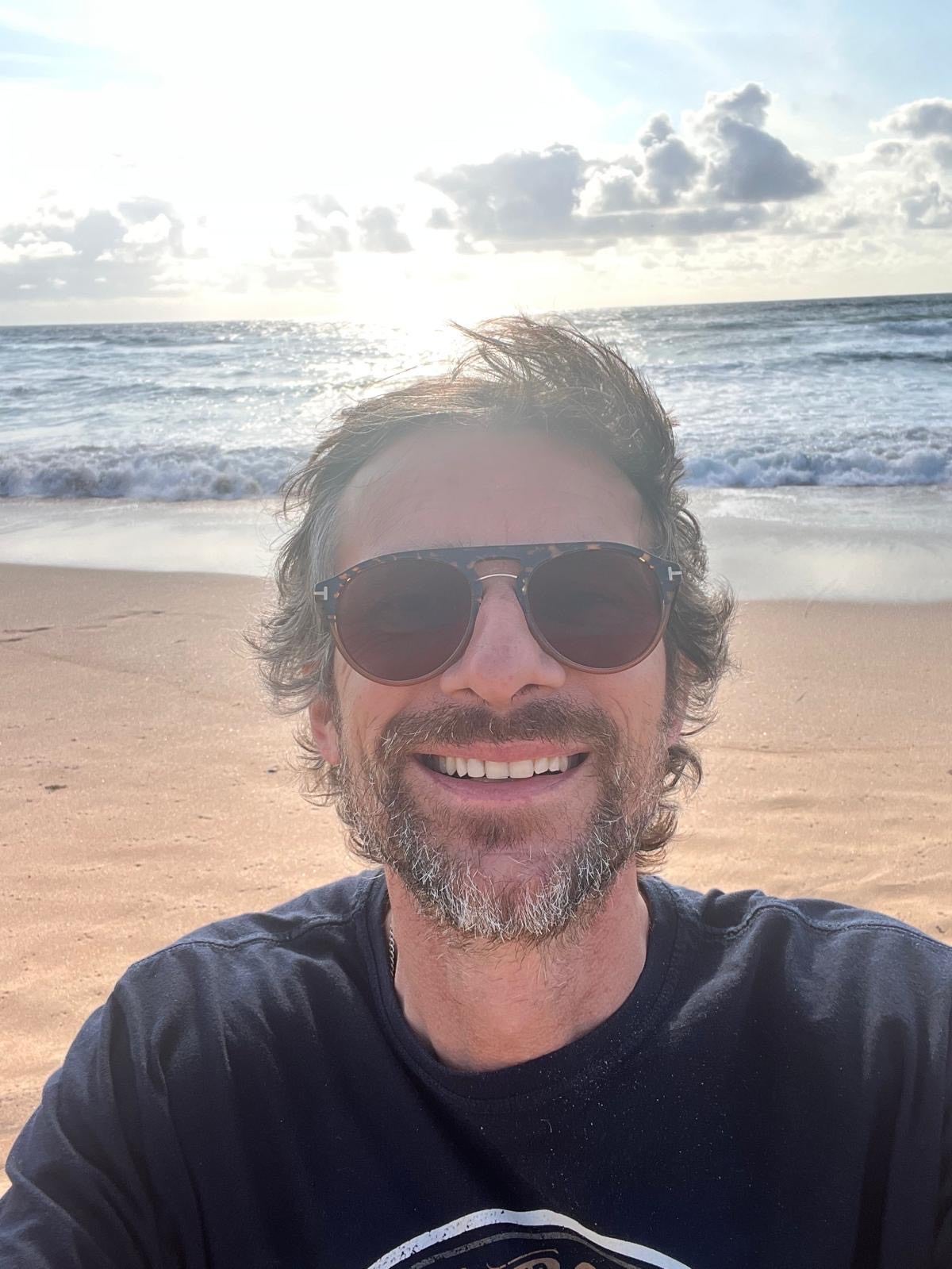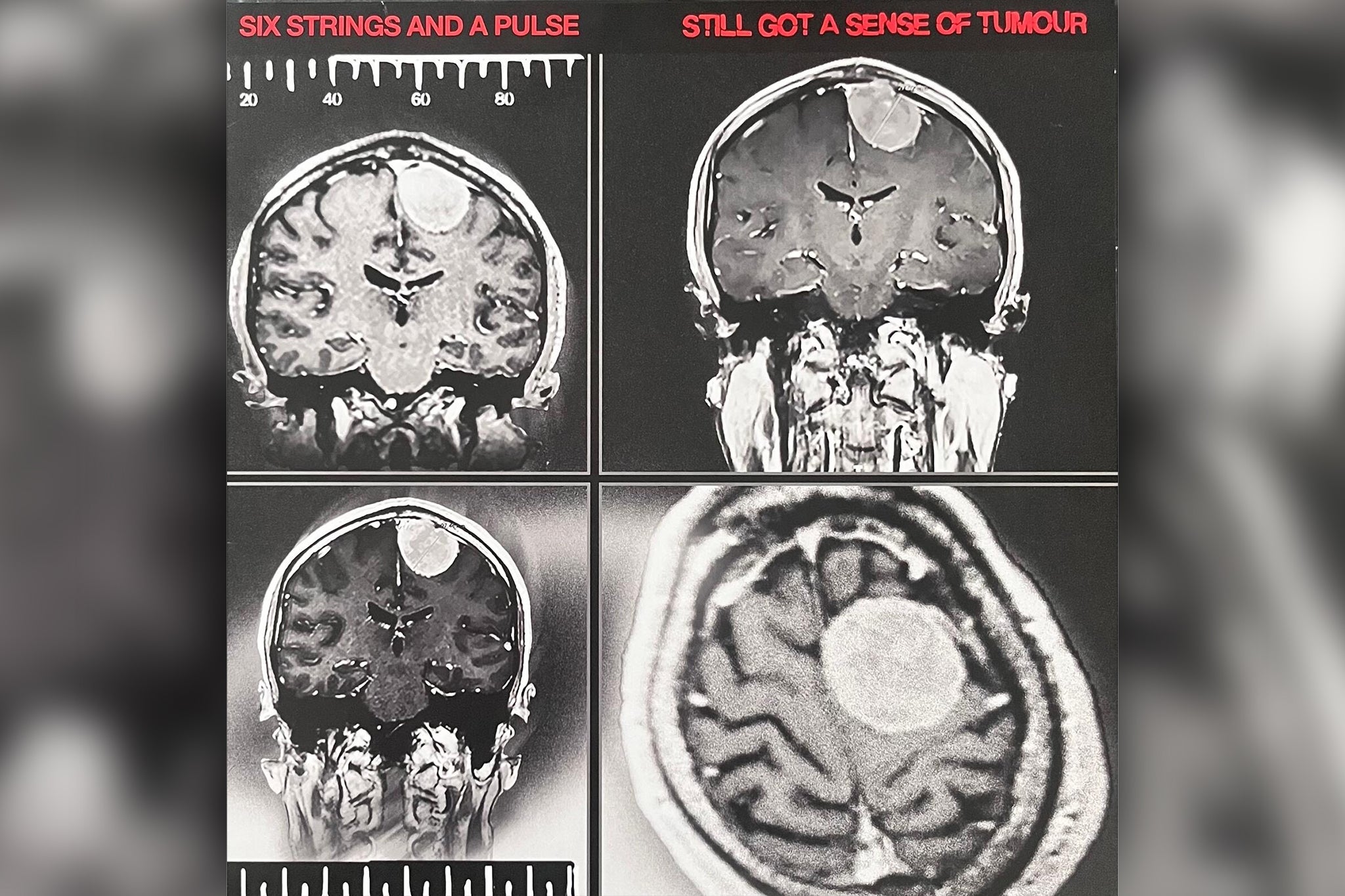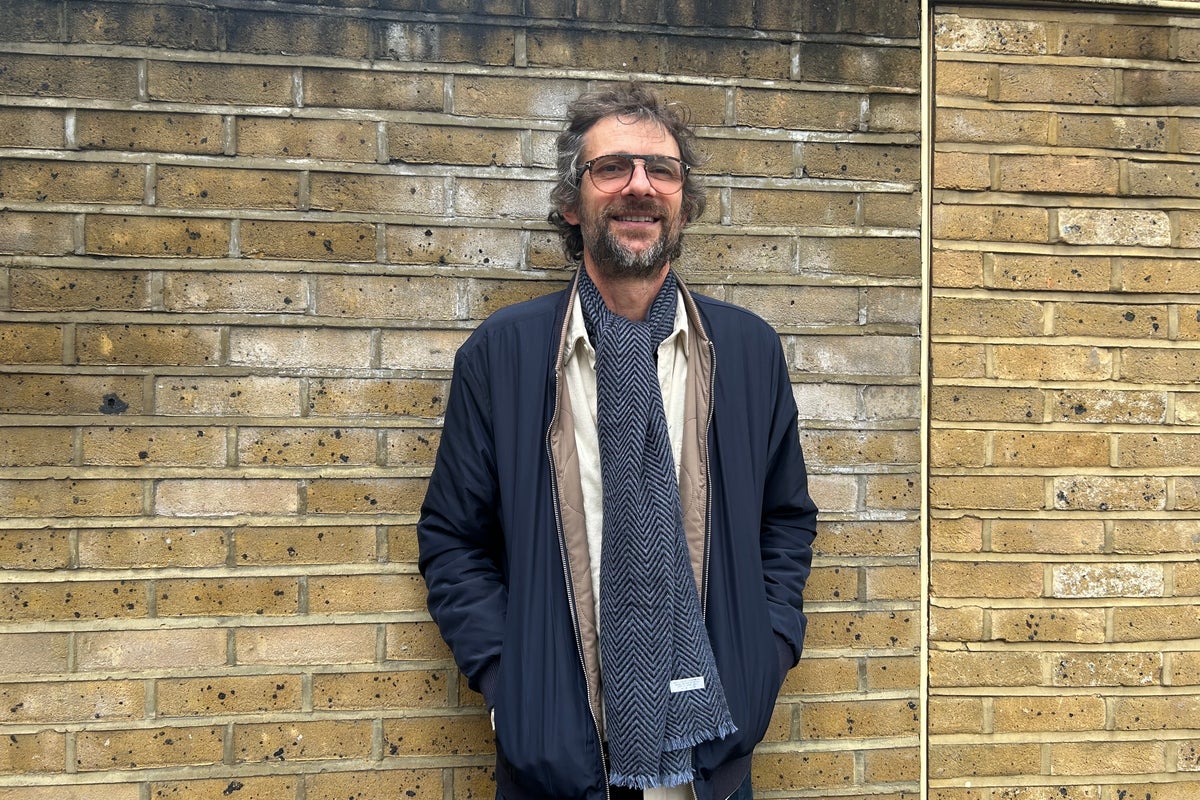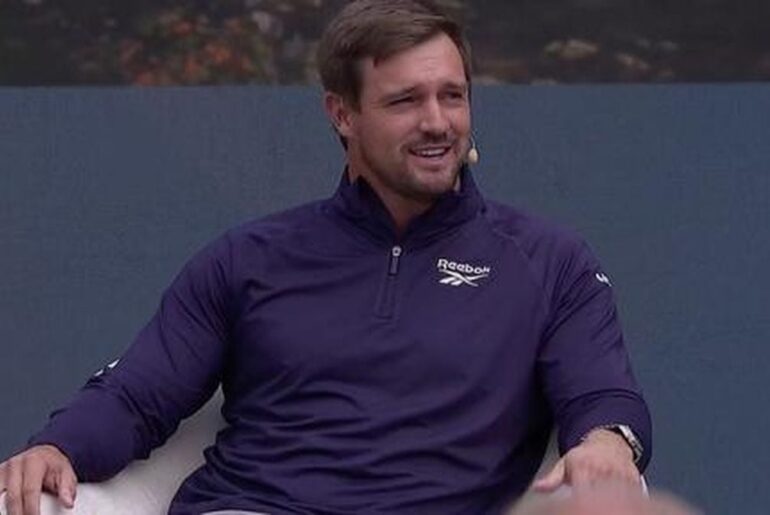
Sign up to our free Living Well email for advice on living a happier, healthier and longer lifeLive your life healthier and happier with our free weekly Living Well newsletterLive your life healthier and happier with our free weekly Living Well newsletter

I’d been suffering from migraines that made me feel nauseous for about five years. When they hit, I knew I’d have to curl up in a dark room until they passed – sometimes for a whole day. After a particularly bad episode in 2017, I finally went to the GP. It hadn’t crossed my mind that anything serious was going on.
At the time, I was married and living in Kilburn, north London, with an eight-year-old son and a 17-year-old stepdaughter. I was working in the building industry and as a musician, but when the blinding headaches hit about twice a week, life just stopped.
I’d tried all sorts of holistic remedies: CBD oil, a healer, various supplements. I considered whether it might be stress, but it also happened once while I was relaxing on a beach holiday. I tried to eat less sugar and dairy, thinking it might be diet-related. Nothing worked. I just took the approach that once an episode was over, I’d just get on with things again.

open image in gallery
When David Aird was diagnosed with a brain tumour in 2017, he didn’t know how to process it (Charlotte Cripps)
I told the GP everything, and she sent me for a scan. It took about a month to get the appointment, but I still wasn’t worried. The GP asked me to come in for the results. I went in on my own, and she told me I had a meningioma, which is a brain tumour. I felt numb; I had a delayed reaction. I’ve always been the kind of person who is present, but my feelings travel in a bag three days behind me. The GP said it looked benign, but I needed to see a consultant.
I went home and told my wife, who was beside herself with worry. I felt like I had to calm her down, and yet it was me who had the brain tumour. Over the next few days, I mulled it over. There were moments when I faced my own mortality, thinking, “Oh my God, am I going to die?”
I looked up how to do a will. I didn’t know how to process the situation. I didn’t want to talk to my wife about it too much, as it really stressed her out. I didn’t tell my children, obviously. I told a couple of friends and my sister. My dad had dementia at the time. I felt like I was dealing with it alone. I reassured myself: “Somebody will fix it. There will be a solution.” I work as a builder, and if there is a leak, or a door is off its hinge, it gets fixed. I took the same philosophy into the medical world.

open image in gallery
David didn’t think his bad migraines meant there was anything seriously wrong with him (David Aird)
Nearly a month later, as I sat in a London hospital room with my wife, a consultant casually told me that, although the tumour was the size of a golf ball, I didn’t need to do anything about it. The doctor seemed more interested in talking about the football results, and was strangely detached. He said the migraines had nothing to do with the brain tumour. My gut instinct was that the migraines were connected to it, and I needed to get a second opinion.
I got referred to another consultant. It felt like the whole situation was upsetting for other people, and so this time it was easier to go alone. The consultant said, “If it were my brother, I’d take it out. But you have a choice. We can take it out, but it’s a dangerous operation because it’s the size of a golf ball and it’s right next to a big vein. Or we can leave it because it’s not affecting you right now – and we’ll keep an eye on it through regular scans to make sure it’s not growing.” She also said it looked benign.
I said, “What is the risk if you take it out?” She replied: “Stroke, seizure or death.” And I said, “What is the risk of leaving it?” and she said: “Stroke, seizure or death.” I couldn’t win either way. It felt like a Monty Python sketch, because it was so absurd; both options were the same.
Knowing I have this golf ball in my head, squishing down on the left side, is stressful. But at the same time, I feel more creative than ever
There was a point in 2019, when I was having regular scans every six months, when they thought the tumour was growing. I felt sick with worry. I had another scan, and then they decided that someone had measured it wrong, and it actually hadn’t grown. I was so relieved, and I just thought, “Well, that can happen in my profession, too. How many times does someone measure a kitchen wrong, and then the cabinet doesn’t fit?”
I now have a scan every two years. I’m still living with the side effects of a brain tumour. Sometimes I get muddled and confused, and I can have trouble with planning and changing my mind. I have memory lapses, and I still get migraines. In 2024, I released a modern blues album, called Still Got a Sense of Tumour, that was inspired by my diagnosis and was put out under the alias Six Strings and a Pulse. It raised money for the charity Brain Tumour Research. I felt compelled to write songs while living with my tumour, including “When I Meet My Death”, as well as during my marital breakup in 2021. Around 16,000 people each year in the UK are diagnosed with brain tumours, and I’ve had a few good friends die of aggressive brain tumours, too.

open image in gallery
David wrote a modern blues album, ‘Still Got a Sense of Tumour’, to raise money for the charity Brain Tumour Research (David Aird)
Right now, I’m one of the lucky ones who are living with a brain tumour. I find it helps me to take one day at a time, and I meditate, do Qigong, and try to look after myself. I just get on with it. I sometimes wish I didn’t know I had a brain tumour, because it’s not growing. Ignorance is bliss. Other times, when I have a really rotten migraine, I question myself: “Should I have it taken out?” There is no way to deal with it unless I have an operation, because the tumour is too big for radiotherapy. I don’t know what caused it, but I am 6ft 2in and have banged my head a lot in the past.
Knowing I have this golf ball in my head, squishing down on the left side, is stressful. But at the same time, I feel more creative than ever, and the little ducks of trivialities that peck at my ankles every day are much smaller now – every day is a blessing.







